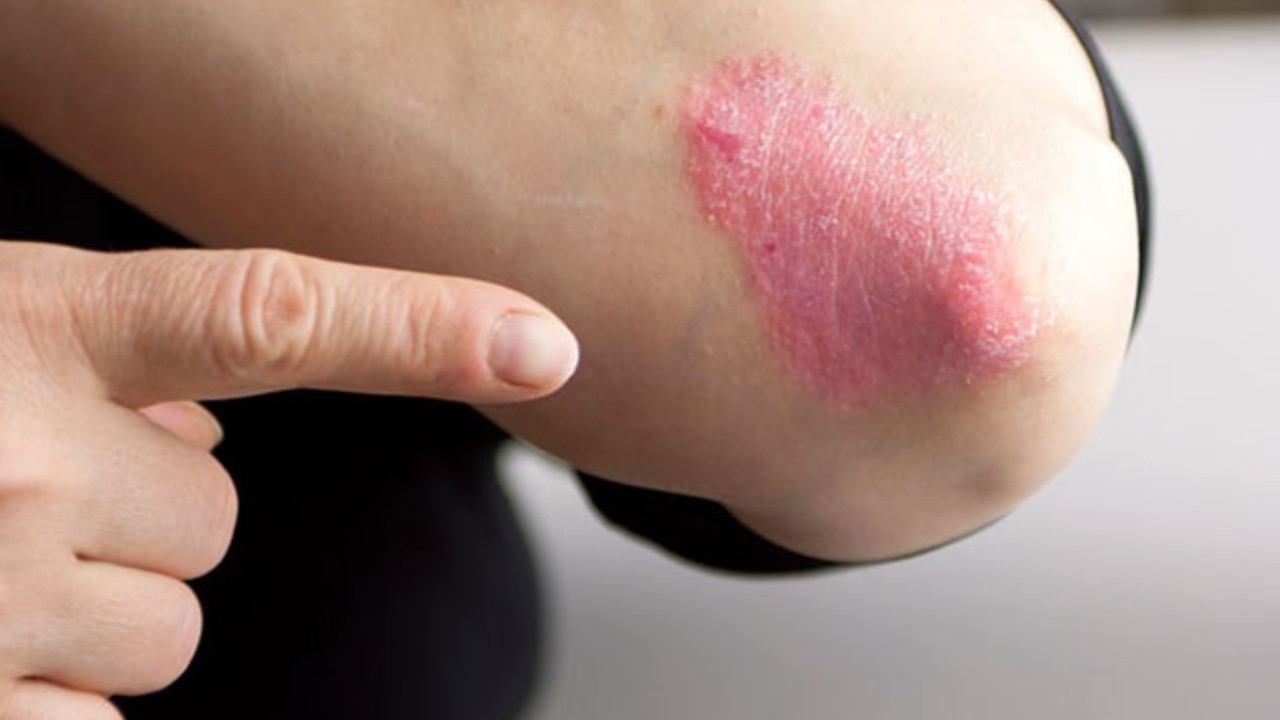Ayurvedic Treatment for Psoriasis: How Does It Work?
Psoriasis is a chronic, non-infectious autoimmune inflammatory condition primarily affecting the skin. It impacts approximately 1-3% of the global population. The disease is characterized by erythematous plaques with well-defined edges, covered by silvery scales.
 These skin lesions are often itchy and, in around 20% of cases, may also involve the joints, leading to psoriatic arthritis. Several factors can exacerbate psoriasis, including stress, infections, certain medications like beta blockers, seasonal changes, and associated allergies. The condition is also believed to have a hereditary component.
These skin lesions are often itchy and, in around 20% of cases, may also involve the joints, leading to psoriatic arthritis. Several factors can exacerbate psoriasis, including stress, infections, certain medications like beta blockers, seasonal changes, and associated allergies. The condition is also believed to have a hereditary component.
5 Different Types of Psoriasis
Modern dermatology identifies five main types of psoriasis:
1. Plaque Psoriasis (Psoriasis Vulgaris):
- Prevalence: Accounts for about 90% of cases.
- Appearance: Red patches covered with white scales.
- Common Areas: Typically affects the forearms, lower legs, scalp, and around the face.
2. Guttate Psoriasis:
- Appearance: Small, drop-shaped, scaling lesions.
- Trigger: Often follows a streptococcal throat infection.
3. Inverse Psoriasis:
- Appearance: Smooth, red, inflamed patches in skin folds.
- Common Areas: Found in areas like the armpits, groin, or under the breasts.
4. Pustular Psoriasis:
- Appearance: Formation of pustules (blisters filled with non-infectious pus).
- Common Areas: Can occur on the palms and soles, sometimes confused with eczema.
5. Erythrodermic Psoriasis:
- Appearance: Severe form that covers almost the entire body with inflamed, red skin.
- Characteristics: Difficult to treat and manage.
Additionally, about 50% of psoriasis patients experience nail involvement, which can manifest as pinpoint depressions, thickened nails, or subungual hyperkeratosis (thickening beneath the nail).
Ayurvedic Treatment for Psoriasis
In Ayurveda, psoriasis is considered a disorder involving an imbalance of the doshas—vata and kapha—manifesting primarily in the skin (tvaka).
Although psoriasis is closely associated with disturbances in vata and kapha doshas, the role of pitta dosha cannot be overlooked due to its involvement in inflammatory processes.
According to Ayurvedic teachings, most skin diseases are tridoshic disorders, implicating all three doshas.
Approach to Treatment
Ayurveda emphasizes two primary approaches to treatment:
- Shamana (Palliative Treatment): This provides temporary relief of symptoms through local external treatments, such as topical applications. However, it does not address the root cause of the disease and may offer only short-term benefits.
- Shodhana (Cleansing Therapy): This approach aims to eradicate the underlying cause of the disease, expel accumulated doshas from the body, and prevent relapses. Shodhana is considered more effective for chronic conditions like psoriasis.
Shodhana Therapy for Psoriasis
1. Panchakarma: The cornerstone of shodhana therapy in Ayurveda, Panchakarma involves a series of cleansing procedures designed to expel toxins and restore dosha balance. Preparatory treatments, such as oiling, can help in weakening vata, pitta, and kapha doshas. For instance, Panchatiktaka Gritam is a medicinal oil that can be used for this purpose.
2. Vamana (Emetic Therapy): This treatment is especially beneficial for psoriasis, particularly during spring (Vasanta Ritu) when kapha dosha tends to be aggravated. Vamana helps eliminate excess kapha, which can exacerbate psoriasis.
3. Virechana (Purgation Therapy): This therapy is effective for balancing pitta dosha and is best performed in autumn (Sharat Ritu) when pitta levels are naturally elevated. Virechana aids in detoxifying the body and reducing pitta imbalances.
Medicinal Therapy for Psoriasis
1. Kaishora Guggulu: A formulation containing Triphala, Giloy, and Guggul gum, which is known for its detoxifying and anti-inflammatory properties. This formulation helps in cleansing metabolic channels (srotas) and purifying the blood (rakta shodhana).
2. Bitter-Tasting Preparations: These are beneficial for the skin and help reduce itching. Bitter-tasting herbs balance kapha and pitta doshas, and can also assist in softening vata dosha.
3. Hot Potency Herbs: Medicines with hot potency, such as Guggul, can counteract the cold properties of vata dosha and promote better circulation.
4. Ayurvedic Herbal Wines (Arishta): Preparations like Khadirarishtam have pungent, diffuse, and penetrating properties that reach the channels (srotas) effectively, aiding in the elimination of accumulated doshas.
5. Rasayanas: These rejuvenative treatments, such as Gandhak Rasayana, help mitigate vata and kapha doshas and possess skin-cleansing properties.
6. External Oil Applications: Regular use of medicated oils can pacify vata and kapha doshas, providing relief from dryness and scaling.
7. Leech Therapy: In some cases, leech therapy can be beneficial for reducing localized inflammation and improving blood circulation.
Mental Health Considerations
Given that stress plays a significant role in psoriasis, incorporating medications that support mental health is also essential. For example, Manasamitra Vatakam is known for its benefits in managing stress and improving mental well-being.
Note: Treatment for psoriasis should always be prescribed and monitored by a qualified Ayurvedic doctor. Self-medication or using treatments without professional guidance can lead to adverse effects and ineffective management of the condition.

























